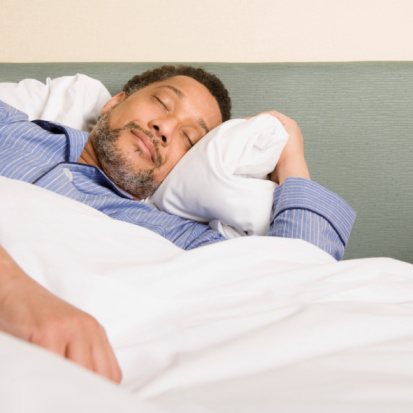 The National Sleep Foundation reports that about 37 percent of adults sleep less than seven hours per night, but the recommended time is seven to nine hours. People who don’t get enough sleep are more likely to experience daytime sleepiness and health problems. This week, March 5-11, is National Sleep Awareness Week, a campaign designed to promote the importance of sleep. Dr. Pate can help you understand the importance of getting adequate sleep at night.
The National Sleep Foundation reports that about 37 percent of adults sleep less than seven hours per night, but the recommended time is seven to nine hours. People who don’t get enough sleep are more likely to experience daytime sleepiness and health problems. This week, March 5-11, is National Sleep Awareness Week, a campaign designed to promote the importance of sleep. Dr. Pate can help you understand the importance of getting adequate sleep at night.
- Sleep apnea is the most common sleep disorder, affecting about 18 million Americans. Sleep apnea blocks your airways at night, interrupting your rest.
- Insufficient sleep is associated with anxiety, depression, obesity, cardiovascular disease, stroke, and high blood pressure.
- Sleeplessness decreases your performance and effectiveness, and increases your risk of accidents and injuries.
- The National Highway Traffic Safety Administration reports that drowsy driving is responsible for 1,500 deaths, 71,000 injuries, and 100,000 car accidents each year.
- Staying awake for more than 20 hours straight causes the same reactions and impairment—including blurred vision—as having a blood alcohol concentration level of .08 percent.

